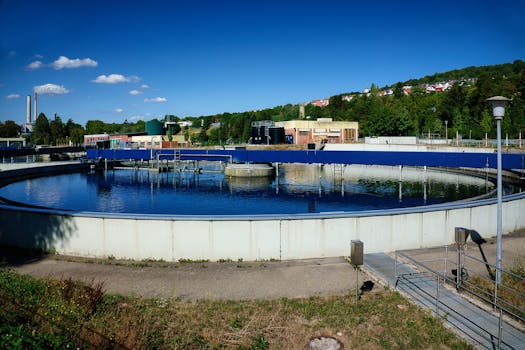
KEZAD's Groundbreaking Initiative: UAE's First Lithium-Ion Battery Recycling Plant to Tackle E-Waste Crisis
The United Arab Emirates (UAE) is poised to become a leader in sustainable battery technology with the announcement of the nation's first lithium-ion battery recycling plant. This pioneering initiative, spearheaded by Khalifa Economic Zones Abu Dhabi (KEZAD), aims to address the burgeoning global challenge of e-waste management and secure a vital supply chain for crucial battery components. The project underscores the UAE’s commitment to circular economy principles and its ambitious sustainability goals. This development is expected to significantly impact the lithium battery recycling market, e-waste management in the UAE, and the broader sustainable battery technology landscape.
Addressing the Growing E-Waste Problem
The exponential growth of electric vehicles (EVs), portable electronics, and energy storage systems has resulted in a dramatic increase in lithium-ion battery waste. This poses a significant environmental threat due to the presence of hazardous materials within these batteries, including heavy metals like cobalt, nickel, and manganese. Improper disposal can lead to soil and water contamination, harming ecosystems and human health. The UAE, like many other nations, is grappling with the challenges of responsible e-waste recycling and the need for innovative solutions to manage this growing waste stream. This new facility represents a significant step towards a more sustainable future.
The KEZAD Advantage: Strategic Location and Infrastructure
KEZAD, a prominent industrial zone known for its advanced infrastructure and strategic location, provides the ideal environment for this ambitious project. Its proximity to major transportation routes and established industrial clusters ensures efficient logistics and access to a diverse pool of skilled labor. This strategic location facilitates the seamless integration of the recycling plant into existing supply chains, optimizing both efficiency and cost-effectiveness. The development reflects KEZAD’s ongoing commitment to attracting innovative and sustainable businesses, further solidifying its position as a leading industrial hub in the region.
The Recycling Process: From E-waste to Valuable Resources
The plant, once operational, will employ cutting-edge technology to recover valuable materials from discarded lithium-ion batteries. The recycling process will involve several key stages:
- Disassembly and Sorting: Batteries will be carefully dismantled to separate different components, including the cathode, anode, and electrolyte.
- Hydrometallurgy: This process uses chemical solutions to extract valuable metals like lithium, cobalt, nickel, and manganese from the battery materials.
- Material Recovery: The extracted metals will be refined and processed into high-purity materials suitable for reuse in new battery manufacturing.
- Waste Management: The remaining non-recyclable materials will be managed responsibly, ensuring minimal environmental impact.
This comprehensive approach to recycling will not only minimize environmental damage but also create a valuable secondary source of raw materials for the battery industry. This aligns perfectly with the UAE's broader vision of diversifying its economy and developing a robust circular economy model.
Boosting Domestic Battery Production and Reducing Reliance on Imports
The successful operation of this plant will significantly reduce the UAE's reliance on imported battery materials. By recovering valuable metals from recycled batteries, the plant will contribute to domestic battery production, bolstering the country's burgeoning renewable energy sector and electric vehicle initiatives. This initiative supports the UAE's ambitious goal of diversifying its energy sources and promoting sustainable transportation. The project further demonstrates the nation’s commitment to achieving its ambitious Net-Zero targets.
Economic Benefits and Job Creation
Beyond the environmental benefits, the lithium-ion battery recycling plant is expected to create significant economic opportunities. The project will generate numerous jobs in various fields, including engineering, operations, and logistics. The plant will also attract investment in related industries, stimulating further economic growth within the UAE. This initiative aligns with the government's strategic efforts to diversify the economy and create high-skilled employment opportunities.
Global Implications: A Model for Sustainable Battery Management
The UAE’s initiative to establish a state-of-the-art lithium-ion battery recycling plant sets a powerful example for other nations grappling with the challenges of e-waste management. The project’s success could serve as a blueprint for developing similar facilities globally, contributing to a more sustainable and responsible approach to battery lifecycle management. This will be particularly important as global demand for lithium-ion batteries continues to grow exponentially.
Looking Ahead: A Sustainable Future for Battery Technology
The launch of the UAE's first lithium-ion battery recycling plant marks a significant milestone in the country’s commitment to sustainable development. This initiative not only addresses the pressing issue of e-waste but also contributes to the nation’s economic diversification and strengthens its position in the global green technology landscape. As the demand for lithium-ion batteries continues to surge, this innovative recycling plant will play a crucial role in ensuring a more sustainable and responsible future for battery technology. The project’s success will serve as a catalyst for innovation and collaboration within the broader global e-waste management sector, paving the way for a cleaner and more sustainable world. The focus on circular economy solutions is at the forefront of this initiative, setting a precedent for other nations to follow.



















